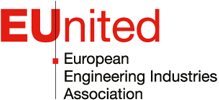You are here:
>
Municipal Equipment
>
RCV
Safe Refuse Collection Vehicles
Municipalities and private contractors have a huge responsibility when it comes to protecting their workers while working with refuse collection vehicles. It is therefore important that while looking for cost-efficient new machinery the purchaser still ensures that the vehicles complies with the important safety requirements defined by European legislation and standards.
To support the purchasing municipalities and private contractors EUnited Municipal Equipment, the industry association representing the leading European manufacturers, has published a brief guide for the identification of safe and legally compliant refuse collection vehicles.
The guide lists the most relevant features of a refuse collection vehicle and explains the difference between a safe and compliant technical solution and non-compliant vehicles which put the workers at risk. The brochure is not a complete and comprehensive listing of the complex legislation and standards, but shall act as an “early warning” tool. Topics illustrated in the brochure with pictures shall enable customers to check without in-depth knowledge and technical information. In case one or more of the criteria mentioned are not compliant, customers should very carefully check the machine before buying and using it. EUnited Municipal Equipment emphasizes, that the fact that a machine is labeled with a CEmarking does not automatically discharge employers from their obligation to check and ensure that the machine provided to their workers is safe.
Legal background
Refuse collection vehicles (RCV) placed on the EU market for the first time must comply with the relevant EU legislation – and meet all valid safety and environmental requirements.
An RCV which does not fulfil these requirements is non-compliant and is not allowed to be placed on the EU market. Therefore, European Standards EN 1501 Part 1 to 5 provide detailed description regarding to the safety requirements of e.g. the Machinery Directive and Outdoor Noise Directive especially for RCV and their lifting devices. According to the European Directive 2009/104/EC concerning the minimum safety and health requirements for the use and maintenance of work equipment by workers at work, employers who provide machines like an RCV as working equipment to their employees are obliged to make a risk assessment for the usage of the RCV.
The CE marking and the manufacturer’s declaration of conformity with the European Machinery Directive do not discharge the employer from this obligation.
Consequences for customers and end-users
- Import and resale of a non-compliant RCV is an illegal act within the EU, because this RCV can neither be labeled with a legally valid CE-marking nor have a valid declaration of conformity.
- Employers are obliged to provide safe work equipment to their employees. Employers using non-compliant machines and providing those to their employees are exposed to liability under the national legislation transposing the EU legislation concerning safety and health of workers at work. National authorities have the right to impose sanctions on employers who infringe their obligation to provide safe and compliant equipment to their employees. Such sanctions may be fines or even imprisonment.
- In case of accidents or of verification by the authorities, the RCV may be blocked and withdrawn from its use which causes a delay in the work and financial losses.
- Equipment insurance coverage may be invalid.
- Users of non-compliant RCV may be excluded from public tenders.
- Users of non-compliant RCV would lose their reputation as a contractor if these violations would become public.
Therefore, a simple check of an RCV could provide a first impression whether an RCV complies with the European Machinery Directive or not. This guideline is meant to help to easily distinguish between compliant and non-compliant RCV. It describes only those essential criteria which can be checked even without in-depth knowledge and technical information. Thus, this brochure is not meant to be comprehensive but is designed to serve as an “early warning” tool. However, if one or more items are out of line with the criteria, then it is likely that you have non-compliant equipment. EUnited Municipal Equipment, being the recognized association representing and promoting European municipal equipment manufacturers and related industries, calls upon all responsible authorities and stakeholders to work closely together in order to to rid the EU of non-compliant RCV.
EUnited AISBL- European Engineering Industries Association,
Industrious Brussels EU District, Avenue des Arts 6-9, 1210 Brussels, Belgium, +32 490 57 57 65
Transparency Register number: 0289344948-82
Industrious Brussels EU District, Avenue des Arts 6-9, 1210 Brussels, Belgium, +32 490 57 57 65
Transparency Register number: 0289344948-82
© 2025 Eunited aisbl, Bruxelles
